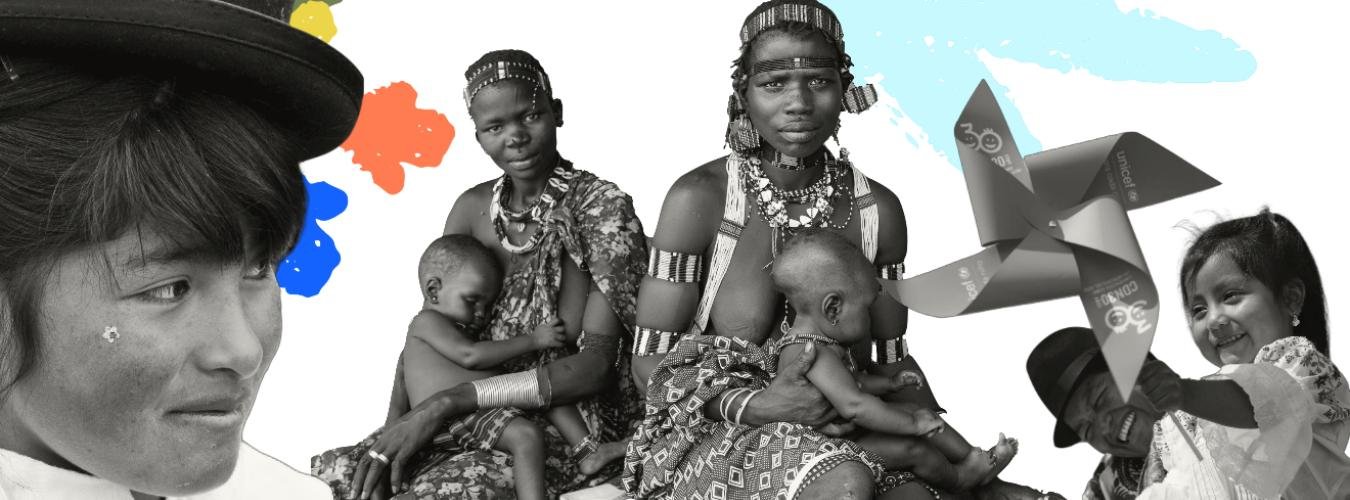Safia Ramzan
Protecting the Rights of Indigenous Peoples
Indigenous Peoples comprise a mere fraction, less than 6%, of the world’s total population, yet astonishingly, they account for at least 15% of the world’s impoverished individuals. Their territories span across 28% of the Earth’s land surface and are home to 11% of the planet’s forests. As the custodians of a significant portion of the world’s remaining biodiversity, Indigenous Peoples play a crucial role in preserving our natural environment.
Moreover, the remarkable self-sufficiency of Indigenous Peoples in their food systems, with levels of self-reliance ranging from 50% to 80% in the generation of food and resources, is a testament to their deep connection to the land and their ability to sustain themselves using traditional knowledge and practices. This resilience is not only inspiring but also offers hope for the preservation of their unique way of life.
Currently, there are approximately 200 groups of Indigenous Peoples who have chosen to live in voluntary isolation and initial contact. These communities reside in remote forests that are rich in natural resources, located in countries such as Bolivia, Brazil, Colombia, Ecuador, India, Indonesia, Papua New Guinea, Peru, and Venezuela. Their decision to live separately from the rest of the world allows them to maintain their traditional practices of gathering and hunting, which in turn helps preserve their cultures and languages. These Indigenous Peoples have a deep reliance on their natural surroundings, and any disruptions to their environment can pose significant threats to their individual and collective well-being.
Despite the recognition of their autonomy in the UN Declaration on the Rights of Indigenous Peoples, those living in voluntary isolation and initial contact face unique challenges that often go unnoticed by the outside world. The development of agriculture, mining, tourism, and exploitation of natural resources in their territories has led to extensive deforestation, resulting in the disruption of their way of life and the destruction of the natural environment that they have safeguarded for generations.
One of the most severe risks faced by Indigenous Peoples in voluntary isolation and initial contact is the potential exposure to diseases from external contact. Due to their isolation, these communities lack immunity to common diseases. Thus, forced encroachment from the outside world can have devastating consequences and lead to the potential collapse of entire societies.
The International Day of the World’s Indigenous Peoples in 2024, with its focus on the theme of ‘Protecting the Rights of Indigenous Peoples in Voluntary Isolation and Initial Contact’, serves as a stark reminder of the urgent need to act. It emphasizes that these Indigenous Peoples are the best guardians of the forests, and their survival is not only crucial for the preservation of our planet but is also vital for safeguarding cultural and linguistic diversity. In today’s highly interconnected world, the existence of Indigenous Peoples in voluntary isolation and initial contact serves as a testament to the diverse tapestry of humanity. It would be an immeasurable loss to our world if these communities were to cease to exist.
The commemoration event, scheduled for August 9, 2024, from 9:00 to 10:30 a.m. EDT in New York time, is of utmost importance. It provides a platform for speakers to share their insights and expertise on protecting the rights of Indigenous Peoples in voluntary isolation and initial contact. Your participation in this event is not just a contribution to a vital cause, but also a recognition of the importance of this issue.
It’s important to recognize that there are an estimated 476 million Indigenous Peoples living across 90 countries, constituting less than 6% of the world’s population. Despite their relatively small population size, Indigenous Peoples account for at least 15% of the world’s poorest individuals. They also speak a significant majority of the world’s estimated 7,000 languages and represent over 5,000 distinct cultures, each with its own unique traditions, languages, and ways of life.
Indigenous Peoples are the bearers of unique cultures and possess distinctive ways of interacting with people and the environment. They uphold social, cultural, economic, and political characteristics that set them apart from the dominant societies in which they reside. While they may have diverse cultural backgrounds, Indigenous Peoples worldwide share common challenges related to the protection of their rights as distinct communities.
For years, Indigenous Peoples have strived for the recognition of their identities, ways of life, and their entitlement to traditional lands, territories, and natural resources. However, throughout history, their rights have been consistently violated. Presently, Indigenous Peoples are among the most marginalized and vulnerable groups globally. The international community has come to acknowledge that special measures are essential to protect their rights and preserve their unique cultures and ways of life.
Every August 9 is observed as the International Day of the World’s Indigenous Peoples, commemorating the first meeting of the UN Working Group on Indigenous Populations in Geneva in 1982. This day is dedicated to raising awareness of the needs and rights of Indigenous Peoples across the globe.
















